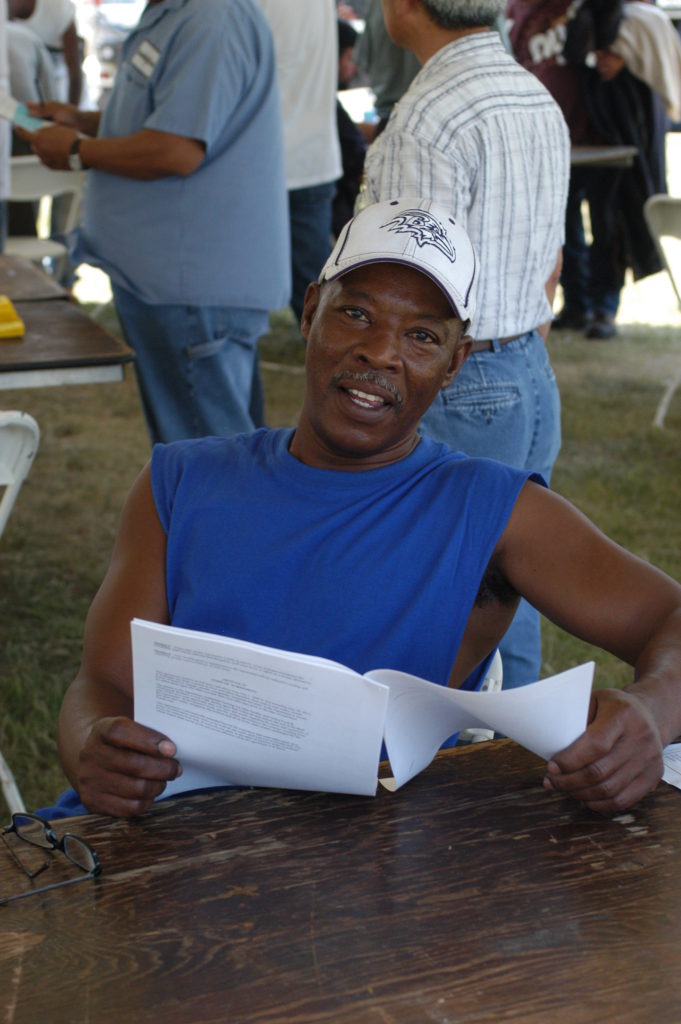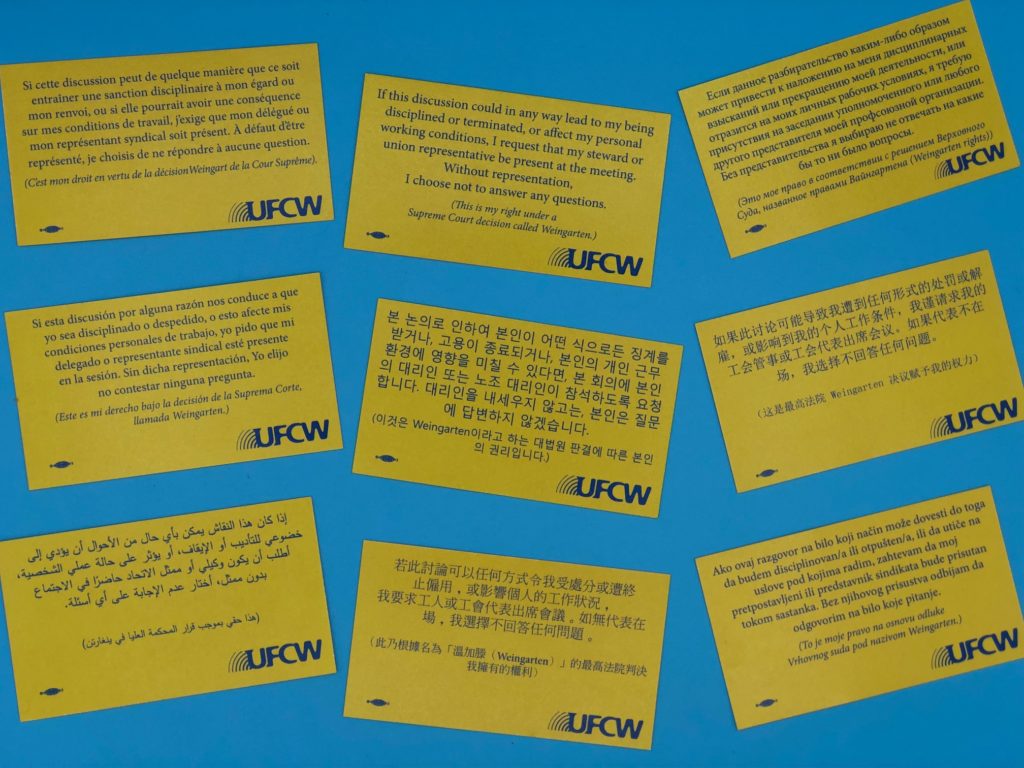
Do you know what a shop steward is? What about Weingarten Rights? If you hang around union people long enough, there’s terms that will keep popping up that can be confusing if you’ve never worked a union job before or had much experience with labor unions.
For a longer list, download the UFCW Glossary of Labor Terminology.
AUTHORIZATION CARD
A form voluntarily signed by an employee whereby the employee authorizes a labor organization (Union) to represent him/her for the purpose of collective bargaining. Some cards will also state that the employee desires an election to be held to determine whether or not the Union has the full support of the majority of the employees in the
bargaining unit.
BARGAINING AGENT
Union certified by a government agency, such as the National Labor Relations Board, or recognized voluntarily by the employer, as the exclusive representative of all employees in the bargaining unit for purposes of collective bargaining.
BARGAINING RIGHTS
The rights outlined in Section 7 of the National Labor Relations Act. Rights of workers to negotiate the terms and conditions of employment through chosen representatives. The bargaining agent is designated by a majority of the workers in a bargaining unit.
BARGAINING UNIT
A group of employees in a given workplace who have a sufficient similarity of interest to constitute a unit for the purpose of bargaining collectively with their employer. A bargaining unit is usually defined by the National Labor Relations Board, or similar federal, state or local agency.
 UNION REPRESENTATIVE
UNION REPRESENTATIVE
(B.A., Business Agent): A full-time representative of a local union whose job it is to represent members in the local.
CARD CHECK
Procedure whereby signed authorization cards are checked against a list of employees in a prospective bargaining unit to determine if the union has majority status. The employer may recognize the Union on the basis of this card check without the necessity of a formal election. Often conducted by an outside party.
COLLECTIVE BARGAINING
Negotiations between an Employer and Union, representing a group of employees, that determines the conditions of employment. The result of the Collective Bargaining Procedure is called the contract. Collective Bargaining is governed by Federal and State Statutory Laws, Administration Agency Regulations, and Judicial decisions.
An Agreement in writing between the Union, acting as bargaining agent and the Employer, covering wages, hours, working conditions, fringe benefits, rights of workers and union, and procedures to be followed in settling disputes and grievances.
 GRIEVANCE
GRIEVANCE
A formal complaint, usually lodged by an employee or the union, alleging a misinterpretation or improper application of one or more terms in a collective bargaining contract. The method for dealing with grievances is through a grievance procedure negotiated in the union contract. If a grievance cannot be settled at the supervisory level, it can be
appealed to higher levels of management.
GRIEVANCE ARBITRATION
The appeal of grievances to an impartial arbitrator for final and binding determination. Sometimes called arbitration of “rights”. The arbitrator determines the meaning of the contract and clarifies and interprets its terms. Arbitration, where it is available, is usually the last step in the grievance procedure.
GRIEVANCE PROCEDURE
The steps established in a collective bargaining contract for the handling of grievances made by or on behalf of employees.
LABOR ORGANIZER
A person usually employed by a union (often the regional or international union), whose function it is to help the employees of a particular employer through the organizing process and o% er guidance on the best ways to go about joining the union.
MADE WHOLE
A catchall phrase used in grievance and other legal action where a remedy is sought from an employer. Often used in discharge and discipline cases where the union seeks to have a worker, who had been wrongly discharged or disciplined, returned to work and reimbursed all wages, benefits, or other conditions lost due to an employer’s unjustified
action
ORGANIZING COMMITTEE
The employees in a non-union shop who are designated to represent their co-workers during the representation campaign. Organizing committee members, among other things, usually sign up their coworkers on authorization cards or petitions acknowledging support for union representation, hand out leaflets, attend meetings and visit
workers at home to gain support for the union effort.
PICKETING
The carrying of signs or the passing out of literature protesting working conditions or actions taken by the employer. Picketing occurs during a strike, or in the form of an informational picket. In this tactic, designed to put pressure on the employer, union members inform the public and other workers about the conditions they feel are unfair.
RANK AND FILE
The members of a union. This term does not apply to the leadership of a union.
RATIFICATION
Formal approval of a newly negotiated agreement by vote of the union members affected.
 SHOP STEWARD/STEWARD
SHOP STEWARD/STEWARD
The union representative of a group of fellow employees who carries out duties of the union within the workplace.
EXAMPLE: Handling grievances, recruiting new members and monitoring compliance with the contract. The steward usually is either elected by other union members or appointed by higher union officials. The steward usually
remains an employee while handling union business. Some release time (with or without pay) may be available to stewards under specific language in many collective bargaining contracts.
UNION LABEL OR BUG
A stamp or tag on a product or card in a store or shop to show that the work is performed by union labor. The “bug” is the printer’s symbol.
WEINGARTEN RIGHTS
The rights of employees covered by the National Labor Relations Act to request union representation during investigatory interviews if they reasonably believe that the interview could result in their being disciplined. “Weingarten rights” also guarantee the rights of union representatives to assist and counsel employees during interviews which could lead to discipline.

